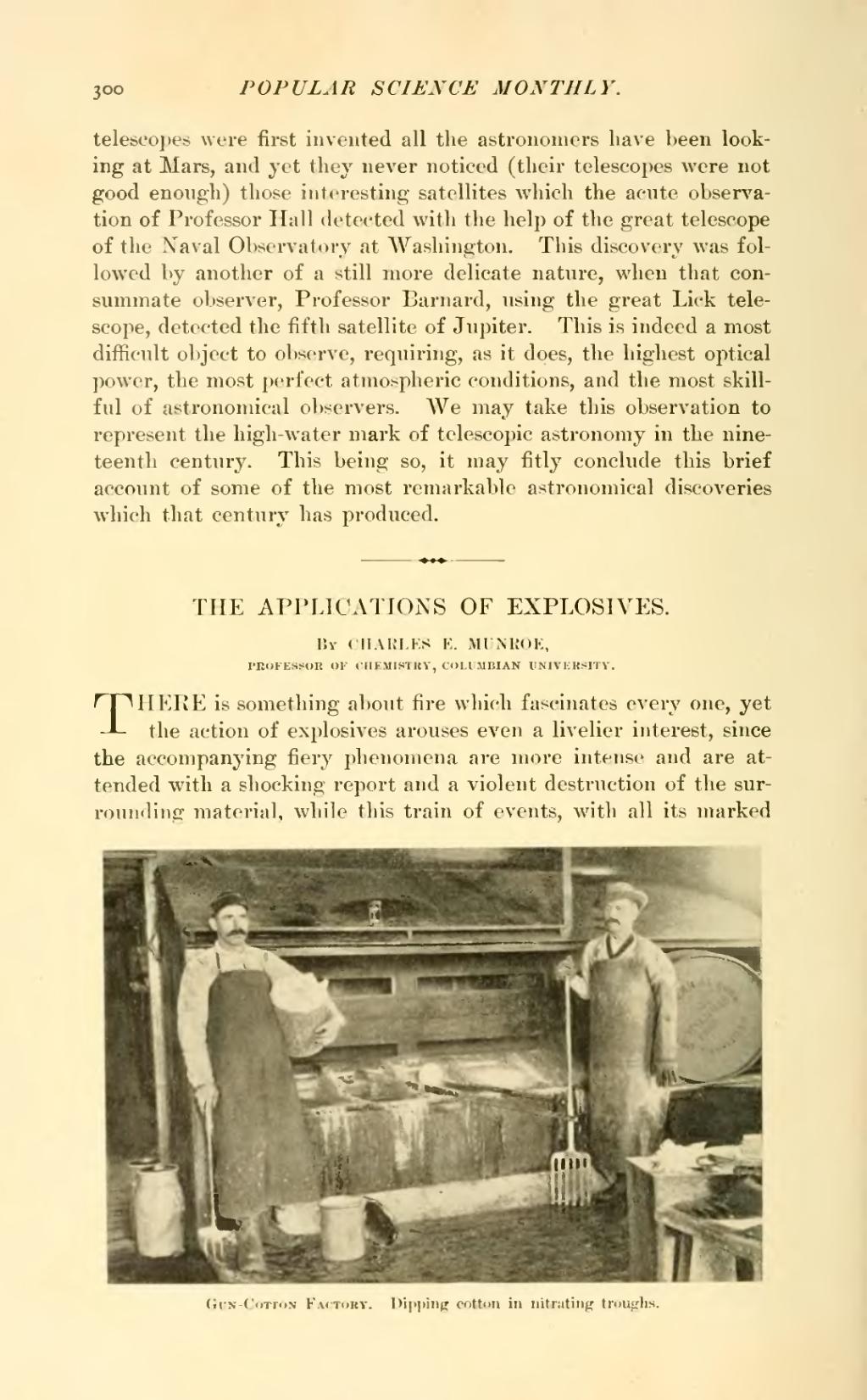telescopes were first invented all the astronomers have been looking at Mars, and yet they never noticed (their telescopes were not good enough) those interesting satellites which the acute observation of Professor Hall detected with the help of the great telescope of the Naval Observatory at Washington. This discovery was followed by another of a still more delicate nature, when that consummate observer, Professor Barnard, using the great Lick telescope, detected the fifth satellite of Jupiter. This is indeed a most difficult object to observe, requiring, as it does, the highest optical power, the most perfect atmospheric conditions, and the most skillful of astronomical observers. We may take this observation to represent the high-water mark of telescopic astronomy in the nineteenth century. This being so, it may fitly conclude this brief account of some of the most remarkable astronomical discoveries which that century has produced.
| THE APPLICATIONS OF EXPLOSIVES. |
By CHARLES E. MUNROE,
PROFESSOR OF CHEMISTRY, COLUMBIAN UNIVERSITY.
THERE is something about fire which fascinates every one, yet the action of explosives arouses even a livelier interest, since the accompanying fiery phenomena are more intense and are attended with a shocking report and a violent destruction of the surrounding material, while this train of events, with all its marked

Gun-Cotton Factory. Dipping cotton in nitrating troughs.

